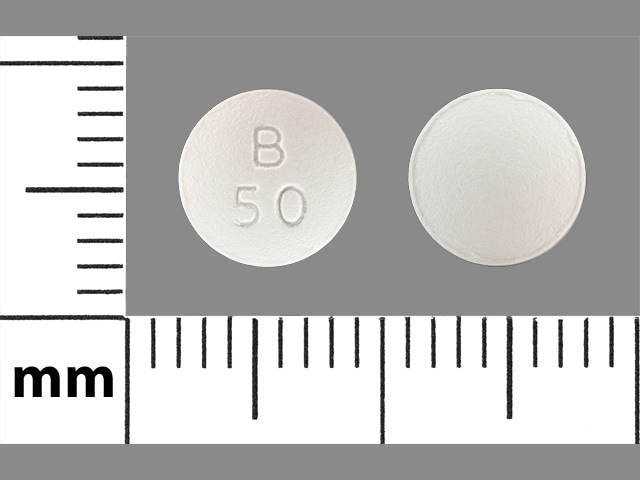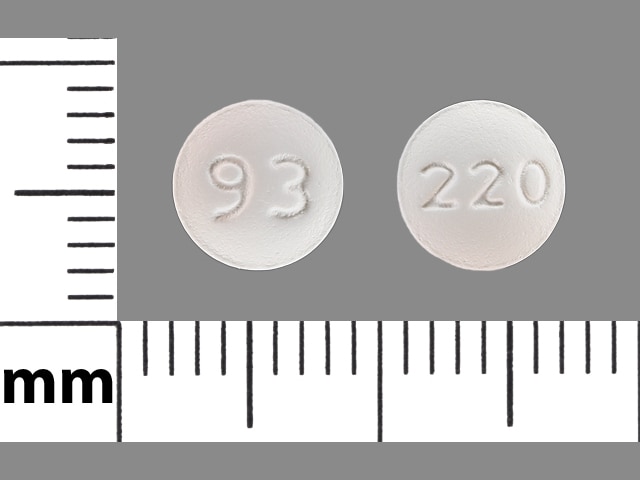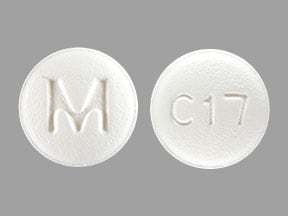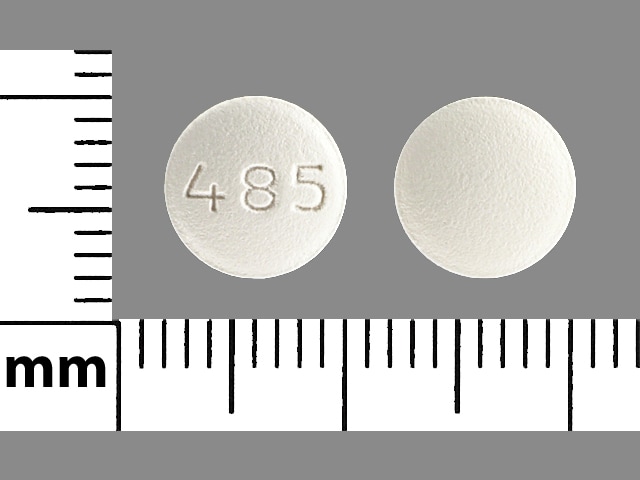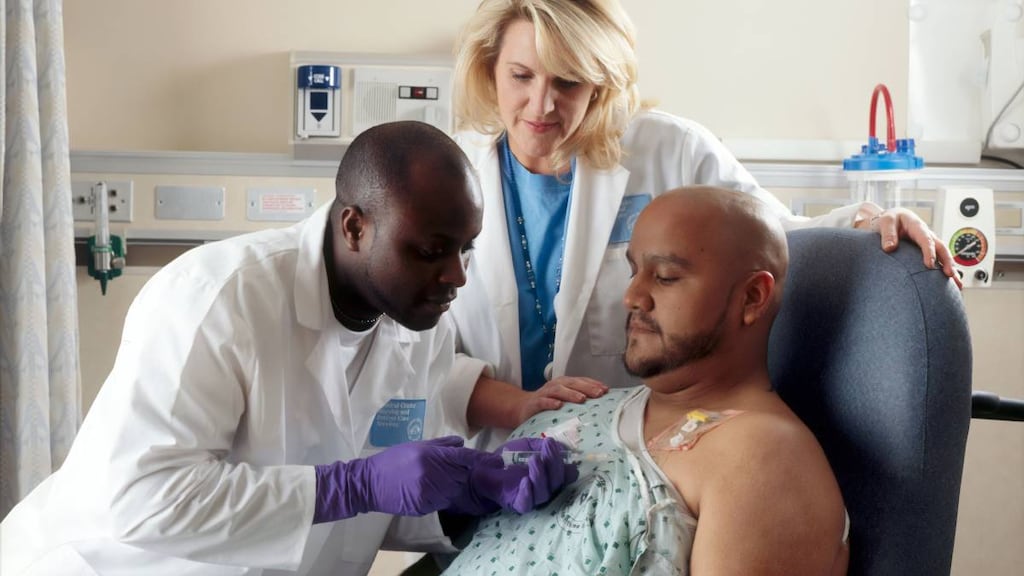What is bicalutamide used for?
- Bicalutamide is used to treat prostate cancer.
- Bicalutamide may be given to you for other reasons. Talk to your doctor.
Before taking bicalutamide, tell your doctor:
- If you are allergic to bicalutamide; any part of this medicine; or any other drugs, foods, or substances. Tell your doctor about the allergy and what signs you had.
- If you are a woman. This medicine is not approved for use in women. If you are a woman using bicalutamide, talk with your doctor if you are pregnant, plan on getting pregnant, or are breast-feeding.
This medicine may interact with other drugs or health problems.
Tell your doctor and pharmacist about all of your drugs (prescription or OTC, natural products, vitamins) and health problems. You must check to make sure that it is safe for you to take bicalutamide with all of your drugs and health problems. Do not start, stop, or change the dose of any drug without checking with your doctor.
What are some things I need to know or do while I take bicalutamide?
- Tell all of your health care providers that you take bicalutamide. This includes your doctors, nurses, pharmacists, and dentists.
- Avoid driving and doing other tasks or actions that call for you to be alert until you see how bicalutamide affects you.
- This medicine may raise the chance of high blood sugar (diabetes). Talk with the doctor.
- If you have high blood sugar (diabetes), talk with your doctor.
- Check your blood sugar as you have been told by your doctor.
- Have blood work checked as you have been told by the doctor. Talk with the doctor.
- Very bad bleeding has happened in people taking certain blood thinners like warfarin with bicalutamide. If you are taking warfarin or another drug like warfarin, talk with your doctor. You will need to have your blood work checked more closely while you are taking it with bicalutamide. Get medical help right away if you have any unexplained bruising or bleeding.
- You may get sunburned more easily. Avoid sun, sunlamps, and tanning beds. Use sunscreen and wear clothing and eyewear that protects you from the sun.
- This medicine may affect being able to father a child. Talk with the doctor.
- If you are a man and have sex with a female who could get pregnant, protect her from pregnancy while you take bicalutamide and for 130 days after your last dose. Use birth control that you can trust.
- If you are a man and your sex partner gets pregnant while you take bicalutamide or within 130 days after your last dose, call your doctor right away.
How is bicalutamide best taken?
Use bicalutamide as ordered by your doctor. Read all information given to you. Follow all instructions closely.
- Take with or without food.
- Take bicalutamide at the same time of day.
- Keep taking bicalutamide as you have been told by your doctor or other health care provider, even if you feel well.
What do I do if I miss a dose?
- Skip the missed dose and go back to your normal time.
- Do not take 2 doses at the same time or extra doses.
What are the side effects of bicalutamide that I need to call my doctor about immediately?
WARNING/CAUTION: Even though it may be rare, some people may have very bad and sometimes deadly side effects when taking a drug. Tell your doctor or get medical help right away if you have any of the following signs or symptoms that may be related to a very bad side effect:
- Signs of an allergic reaction, like rash; hives; itching; red, swollen, blistered, or peeling skin with or without fever; wheezing; tightness in the chest or throat; trouble breathing, swallowing, or talking; unusual hoarseness; or swelling of the mouth, face, lips, tongue, or throat.
- Signs of high blood sugar like confusion, feeling sleepy, more thirst, more hungry, passing urine more often, flushing, fast breathing, or breath that smells like fruit.
- Signs of high blood pressure like very bad headache or dizziness, passing out, or change in eyesight.
- Signs of infection like fever, chills, very bad sore throat, ear or sinus pain, cough, more sputum or change in color of sputum, pain with passing urine, mouth sores, or wound that will not heal.
- Shortness of breath, a big weight gain, or swelling in the arms or legs.
- Enlarged breasts.
- Breast pain.
- Not able to pass urine or change in how much urine is passed.
- Chest pain or pressure.
- Blood in the urine.
- Muscle weakness.
- Feeling very tired or weak.
- Very bad and sometimes deadly liver problems have happened with bicalutamide. Call your doctor right away if you have signs of liver problems like dark urine, feeling tired, not hungry, upset stomach or stomach pain, light-colored stools, throwing up, or yellow skin or eyes.
- Some people have had lung problems with bicalutamide. Sometimes, this has been deadly. Call your doctor right away if you have signs of lung problems like shortness of breath or other trouble breathing, cough that is new or worse, or fever.
What are some other side effects of bicalutamide?
All drugs may cause side effects. However, many people have no side effects or only have minor side effects. Call your doctor or get medical help if any of these side effects or any other side effects bother you or do not go away:
- Hot flashes.
- Upset stomach.
- Diarrhea.
- Constipation.
- Not able to get or keep an erection.
- Dizziness.
- Feeling sleepy.
- Feeling of warmth.
- Sweating a lot.
- Back, pelvis, or stomach pain.
- Feeling tired or weak.
- Headache.
- Anxiety.
These are not all of the side effects that may occur. If you have questions about side effects, call your doctor. Call your doctor for medical advice about side effects.
You may report side effects to the FDA at 1-800-332-1088. You may also report side effects at https://www.fda.gov/medwatch.
If overdose is suspected:
If you think there has been an overdose, call your poison control center or get medical care right away. Be ready to tell or show what was taken, how much, and when it happened.
Bicalutamide Images
How do I store and/or throw out bicalutamide?
- Store at room temperature.
- Store in a dry place. Do not store in a bathroom.
- Keep all drugs in a safe place. Keep all drugs out of the reach of children and pets.
- Throw away unused or expired drugs. Do not flush down a toilet or pour down a drain unless you are told to do so. Check with your pharmacist if you have questions about the best way to throw out drugs. There may be drug take-back programs in your area.
Consumer information use and disclaimer
- If your symptoms or health problems do not get better or if they become worse, call your doctor.
- Do not share your drugs with others and do not take anyone else's drugs.
- Some drugs may have another patient information leaflet. Check with your pharmacist. If you have any questions about bicalutamide, please talk with your doctor, nurse, pharmacist, or other health care provider.
- If you think there has been an overdose, call your poison control center or get medical care right away. Be ready to tell or show what was taken, how much, and when it happened.
This information should not be used to decide whether or not to take bicalutamide or any other medicine. Only the healthcare provider has the knowledge and training to decide which medicines are right for a specific patient. This information does not endorse any medicine as safe, effective, or approved for treating any patient or health condition. This is only a brief summary of general information about this medicine. It does NOT include all information about the possible uses, directions, warnings, precautions, interactions, adverse effects, or risks that may apply to bicalutamide. This information is not specific medical advice and does not replace information you receive from the healthcare provider. You must talk with the healthcare provider for complete information about the risks and benefits of using this medicine.
